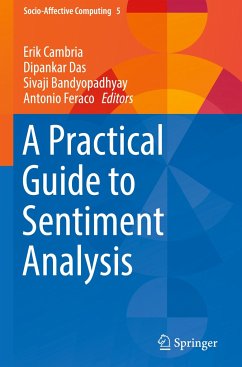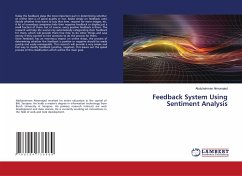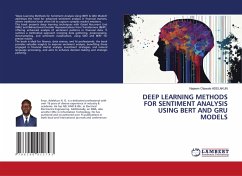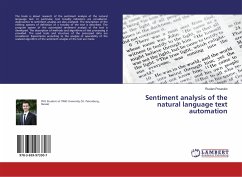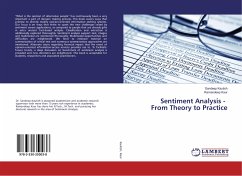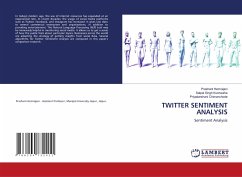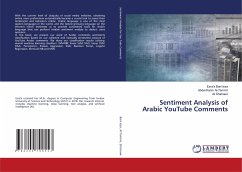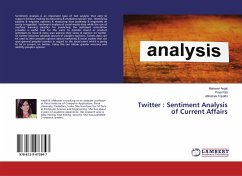
Sentiment Analysis on Regional Texts Using Computational Linguistics
Versandkostenfrei!
Versandfertig in 6-10 Tagen
45,99 €
inkl. MwSt.

PAYBACK Punkte
23 °P sammeln!
Social media has emerged as a major information source for people of all ages, allowing users to voice their thoughts on anything from movies to companies. Sentiment analysis systematically examines online expressions to assess the positive or negative aspects of these opinions. It is a fundamental component of Natural Language Processing (NLP), which sits at the nexus of computer science, artificial intelligence, and linguistics. NLP seeks to make it possible for machines to "understand" human language in order to perform tasks like question-answering and translation.Two methods are used in t...
Social media has emerged as a major information source for people of all ages, allowing users to voice their thoughts on anything from movies to companies. Sentiment analysis systematically examines online expressions to assess the positive or negative aspects of these opinions. It is a fundamental component of Natural Language Processing (NLP), which sits at the nexus of computer science, artificial intelligence, and linguistics. NLP seeks to make it possible for machines to "understand" human language in order to perform tasks like question-answering and translation.Two methods are used in this study for applying sentiment analysis on Gujarati movie reviews: Gujarati Machine Learning Sentiment Analysis (GMLSA) and Gujarati Lexicon Sentiment Analysis (GLSA). Five datasets are used to test the accuracy of machine learning and vocabulary-based methods. The machine learning method uses Logistic Regression (LR), KNN, Random Forest (RF), Naïve Bayes (NB), and SVM, as well as TF-IDF for feature extraction, whereas the vocabulary-based approach uses GujSentiWordNet. When compared to vocabulary-based methods, the machine learning approach improves accuracy by 3-10% on average.



